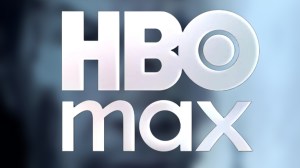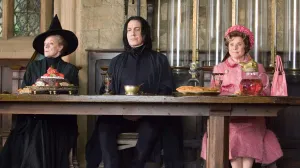In the final chapter of last month’s Arrowverse crossover event, “Elseworlds,” Oliver Queen pleads to The Monitor to save the lives of Barry Allen and Kara Zor-El, whose fates seem grim based on something that Superman read in the Book of Destiny.
Videos by ComicBook.com
The Monitor at first rejects his plea, suggesting that to interfere would skew the results of the “test” that he has been subjecting various realities to. Oliver argues that he does not believe The Monitor is testing them to see if they are strong enough, but whether they are “good enough,” and that Supergirl and The Flash are “the best of us” and inspire people.
The Monitor says that the universe demands balance, and asks what Oliver might suggest to make up for saving his friends…and then the scene more or less ends. A resolved, sorrowful expression on Oliver’s face has led a lot of fans to guess that he is, somehow, trading himself for one or both of the heroes.
That is likely true — but remember that next season’s Arrowverse crossover an adaptation of Crisis on Infinite Earths, so there is a possible “out” for Oliver that would nevertheless maintain the power of his potential sacrifice.

For those who don’t know, Crisis On Infinite Earths was a massive, line-wide crossover event by DC in the mid-’80s. The story united the heroes and villains of DC’s infinite multiverse and pitted them against the Anti-Monitor, an insanely powerful cosmic being who was destroying universes in order to add to his domain in the anti-matter universe.
Ultimately, the entire multiverse was almost destroyed, but saved at the last minute when a number of heroes managed to figure out how to merge the last five Earths into a world with a single, shared history. The resulting universe was strong enough to withstand the Anti-Monitor’s attacks while the heroes united to stop him.
Along the way, Supergirl died destroying the Anti-Monitor’s armor and leaving him sufficiently weakened to save the multiverse. The Flash died preventing his weapon of mass destruction — an anti-matter cannon — from destroying the remaining Earths.
Hundreds of characters were either never seen or heard from again, or eventually rebooted into a new universe that had no memory of their pre-Crisis on Infinite Earths adventures. Some — like Supergirl — were forgotten altogether as memories of the multiverse faded from characters’ memories and the timeline settled into place.
But there were a small number of characters who got special treatment.
Four, to be exact: Superboy-Prime — a younger, less mature Clark Kent from the “real” world (as in ours, where the superhero stories are comics); Alexander Luthor, Jr. of Earth-3, a half-matter, half-antimatter being whose father, Lex Luthor, had designed him to stop the Anti-Monitor; and the Superman and Lois Lane of Earth-2.
That would be the “original” Superman and Lois, who first appeared in 1938. It seemed that even with the other widespread carnage of the Crisis, DC was reticent to kill the “original superhero,” on whom their company was built. Superman, Lois, Superboy, and Luthor were given their own little pocket universe/paradise dimension, where they could live on happily together.
(20 years later, they would emerge from the dimension, maddened by the experience, and serve as the antagonists for Infinite Crisis, but let’s ignore that for now.)
It does not seem entirely unreasonable to believe that some variation on this theme might be applied to Oliver Queen and Felicity Smoak.
Let’s break a couple of things down.
First, yes, it appears likely that Oliver traded his own life for Barry and Kara’s. It is a fairly logical conclusion to draw from what he had said in the scene immediately before the camera cut away, and it would frankly be surprising if at some point between now and “Crisis on Infinite Earths,” we did not see a longer cut of that scene in which Oliver makes the “deal.”
That said, something that has haunted Oliver for the last few episodes of his own series, and was mentioned at least once during “Elseworlds,” was the fact that at the end of last season, he made a deal with the FBI to turn himself in and save his team and Felicity…but he did so without consulting with, or even talking to, his wife.
Given how much the show has dwelt on this point, it would be somewhat strange for his big, heroic sacrifice to have been done in a vacuum, leaving Felicity completely alone forever this time.
That would be a great driver of conflict if Oliver was going to stick around for a while, but if “Crisis on Infinite Earths” was really going to be his swan song, it would be a bad note to end on.
Unless, of course, the universe only believed him to be dead, and somehow, he were given his happy ending with Felicity.
This would bump up against the future from Arrow, where Oliver is not spoken of but Felicity apparently died “recently” — about twenty years from now. Still, there is little to suggest that the dark future of Star City is set in stone, and since something suspiciously like it first appeared on DC’s Legends of Tomorrow, it would seem logical enough that Laurel Lance could call in her kinda/sorta sister Sara and her fellow Legends to help remedy what ails it. Along the way, fixing that dark future might also fix the dark future that Zari Tomaz came from, as well. But that is a lot of conjecture.
In any event, even if the show were going to end (or the mantle of Green Arrow to be permanently passed off to someone else), it seems plausible that the producers and The CW might want to leave the door just a tiny crack open to the possibility of more from Oliver Queen.
Why?
Well, as with Kal-L, he is the original. Stephen Amell’s Oliver Queen is what the Arrowverse was built on, and while it has become something bigger and grander than just him, it would inarguably not have been the same — and maybe not have gotten off the ground — without him.
That seems like the kind of character who deserves to smile at the end of it all.









